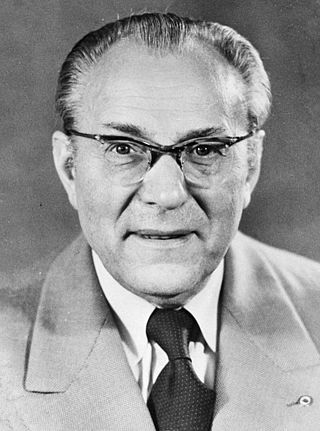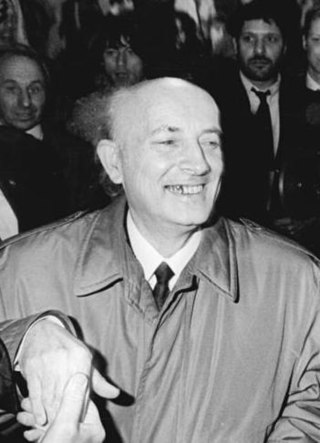Related Research Articles
Ehrhart Neubert was a German evangelical minister and theologian.
Marlies Deneke is a German politician.
Ursula Fischer is a German former national politician (PDS).

Dietmar Keller was an East German politician (SED/PDS) who served as Minister for Culture in the Modrow government. After reunification he sat as a member of the German parliament ("Bundestag") between 1990 and 1994.

Stefan Wolle is a German historian. A focus of his socio-historical research is on the German Democratic Republic which is where, before reunification, he lived and worked.

Angelika Barbe is a German biologist who became a politician.

Dagmar Enkelmann is a German politician of Die Linke party.
Bertram Wieczorek is a German physician and former politician (CDU).
Bernd Meier was a German politician (SED/PDS) and official of the FDJ. He served as first party secretary of the party leadership ("Bezirksleitung") for the Frankfurt (Oder) region and then as a member of the national parliament (Volkskammer) during the eventful run-up to reunification.
Else Ackermann was a German physician and pharmacologist who became an East German politician. The report on the power relationships between the citizen and the state which she drafted, and in 1988 presented, known as the "Neuenhagen Letter", was a significant precursor to the changes of 1989 which led to the ending, in the early summer of 1990, of the one-party system, followed by German reunification later that same year.

Christa Luft is a German economist and politician of the SED/PDS. Luft joined the SED in 1958. From 18 November 1989 to 18 March 1990, she was the Minister of Economics in the Modrow government. From 1994 to 2002 she was member of the Bundestag for the PDS.

Dietmar Keller was an East German politician (SED/PDS) who served as Minister for Culture in the Modrow government. After reunification he sat as a member of the German parliament ("Bundestag") between 1990 and 1994.

Ernst Lemmer was a German politician of the Christian Democratic Union (CDU) and former member of the German Bundestag.

Manfred Preiß is a German politician and businessman. He was Minister for Regional and Local Affairs in the last East German government, overseeing the creation of the new states in preparation of German reunification.

At the inaugural meeting of the Volkskammer on 8 November 1950, Otto Grotewohl was elected Prime Minister. At the same time, the law on the government of the German Democratic Republic was approved and thus given a structure. Grotewohl presented his government at the 2nd meeting of the People's Chamber on 15 November 1950. Among them were 4 state secretaries with their own portfolio, whose secretariats were set up by resolution at the 1st government meeting, which took place before the 2nd Volkskammer conference. At the 2nd government meeting on November 16, 1950, the respective state secretaries of the ministries were appointed by resolution. Among the 21 ministers and almost 30 state secretaries were 13 candidates and members of the Central Committee of the SED, including 4 members of the Politburo. The block parties were represented by a total of 9 ministers and 8 state secretaries, with the CDU alone providing 4 ministers. The DBD was the only block party that did not provide a deputy prime minister at the beginning of the government period. The following overview lists the ministers and state secretaries of the GDR government at the beginning of the government period.

Hans-Wilhelm Ebeling was a German Lutheran clergyman and politician.

Jürgen Kleditzsch is a German physician and former politician of the East German Christian Democratic Union (CDU).

Emil Schnell is a German physicist and former politician of the Social Democratic Party of Germany (SPD).

Klaus Reichenbach is a German football official and former politician of the Christian Democratic Union (CDU).
Herbert Schirmer is a former German politician of the Christian Democratic Union (CDU).
References
- 1 2 3 Helmut Müller-Enbergs. "Schmidt, Christa geb. Weigel * 3.4.1941 Ministerin für Familie u. Frauen in der Regierung de Maizière". Wer war wer in der DDR?. Ch. Links Verlag, Berlin & Bundesstiftung zur Aufarbeitung der SED-Diktatur, Berlin. Retrieved 27 September 2016.
- 1 2 3 4 5 6 7 8 "Ministerbiografie - Dr. Christa Schmidt". Aufbruch und Einheit. Die letzte DDR-Regierung. Bundesstiftung zur Aufarbeitung der SED-Diktatur. Retrieved 27 September 2016.
- ↑ Matthias Willing (2008). Die Dynamik des deutsch-deutschen Vereinigungsprozesses. Vol. Footnote 3. Mohr Siebeck. p. 320. ISBN 978-3-16-149822-0.
{{cite book}}:|work=ignored (help) - ↑ "Christa Schmidt". Neues Deutschland. 14 April 1990. Retrieved 27 September 2016.
- ↑ "Bericht der Ministerin fuer Familie und Frauen, Dr. Christs ASchmidt, vor dem Ausschuss "Familie und Frauen" der Volkskammer am 09. Mai 1990" (PDF). Aufbruch und Einheit. Die letzte DDR-Regierung. Bundesstiftung zur Aufarbeitung der SED-Diktatur, Berlin. Retrieved 27 September 2016.
- ↑ "Nasse Geschäfte: Ein ostdeutscher CDU-Politiker spielt mit den Berliner Wasserwerken Globalisierung - und erwirtschaftet dabei Verluste in dreistelliger Millionenhöhe". Der Spiegel (online). 15 December 1997. pp. 60–63. Retrieved 27 September 2016.